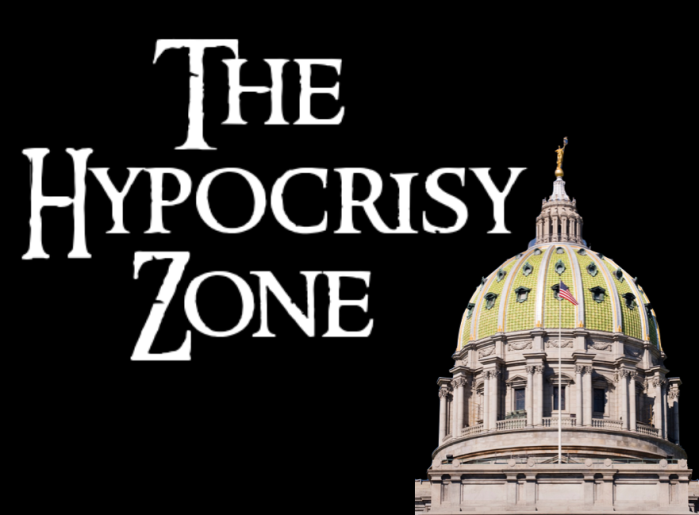PA Senate Regulates Union Political Spending But Not Corporate Political Spending

In a display of blatant hypocrisy, the Pennsylvania state Senate voted yesterday to further regulate labor unions political spending but not that of corporations.
By a vote of 28-22, the Senate passed a bill blocking government agencies from deducting union dues used for political activity from employees’ paychecks.
Even though six Republicans joined all Democrats in opposing SB 166, it now goes to the state House for consideration.
Typically only about 10 percent of union dues are used in politics. These are voluntary contributions employees ask to be deducted from their pay for lobbying in their own interests. Like contributions to the United Way or other charities, it’s an issue of convenience for employees but poses no significant burden on employers.
However, businesses such as insurance companies, big banks and financial companies also are involved in politics. Shouldn’t their spending be subject to similar controls?
Apparently not, according to Senate Republicans.
Leading Democrat Sen. Jay Costa (D-Forest Hills) proposed an amendment to the bill that would have put similar regulations on corporations in the state. It was defeated by a party line vote of 16-34.
Costa’s amendment would have required corporations that are organized in the Commonwealth to get shareholders consent before spending any more than $10,000 a year on politics.
It was a common sense measure meant to ensure that CEOs and board of directors are acting in the interests of their shareholders. However, Senate Republicans turned PA Senate Regulates Union Political Spending But Not Corporate Political Spending |

